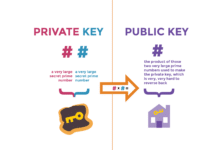Introducing RAMP, a groundbreaking open source benchmark for evaluating assembly robots’ manipulation and planning skills. It empowers researchers with accessible tools to advance robotics in manufacturing.
Researchers from the Oxford Robotics Institute, the Manufacturing Technology Center (MTC), and the University of Birmingham have developed an open source benchmark called RAMP (Robotic Assembly Manipulation and Planning) to evaluate assembly robots’ manipulation and planning abilities. The benchmark aims to enhance the capabilities of assembly robots and make them more suitable for deployment in the manufacturing industry. RAMP employs a flexible system of base parts that can be reconfigured and expanded, allowing for the testing of a wider range of assembly tasks. The benchmark requires explicit reasoning and planning to determine the assembly order of beams, reflecting the complexity of real-world assembly scenarios. It was designed with a focus on offsite construction, where prefabricated parts are assembled to construct building frameworks.
Prof. Ingmar Posner at Oxford is directing the EPSRC Program Grant in Embodied Intelligence under which the work on the RAMP benchmark is being conducted. According to Prof. Posner, “We are delighted to embark on this project with a set of partners and collaborators who are equally passionate about advancing the real-world impact of robotics research. Integral involvement of our technology and deployment partners will ensure that our work stays focused on real and substantive impact in domains of significant value to industry and the public domain.”
How does RAMP work?
RAMP lowers the barrier to entry for researchers by providing all necessary resources publicly, including the base parts, an assembly guide, code for a baseline implementation, and a realistic simulation environment based on the Nvidia Isaac platform. The benchmark also includes a baseline method that solves the easier class of assemblies, which is publicly available for others to build upon and improve. The RAMP benchmark has the potential to contribute significantly to the evaluation and advancement of robotic assembly. By enabling researchers and manufacturers worldwide to test their own robotic systems, RAMP facilitates measurable progress in the field while addressing open challenges in robotics.
The researchers plan to leverage the simulation environment associated with RAMP to explore learning-based approaches for solving assemblies more robustly. They also aim to develop methods that eliminate the need for an expert to define assembly orders through symbolic planners. These future research efforts will further contribute to the evolution and refinement of the RAMP benchmark, making it an even more valuable resource for the robotics community.
The development of RAMP will help researchers and engineers develop better assembly robots that can perform more complex tasks. The RAMP benchmark is a valuable tool for evaluating the planning and manipulation skills of assembly robots, and it could soon prove to be an essential tool for the robotics industry. With RAMP’s accessibility and potential for growth, it is poised to drive advancements in robotic assembly, paving the way for more efficient and capable robots in the manufacturing industry.













































































